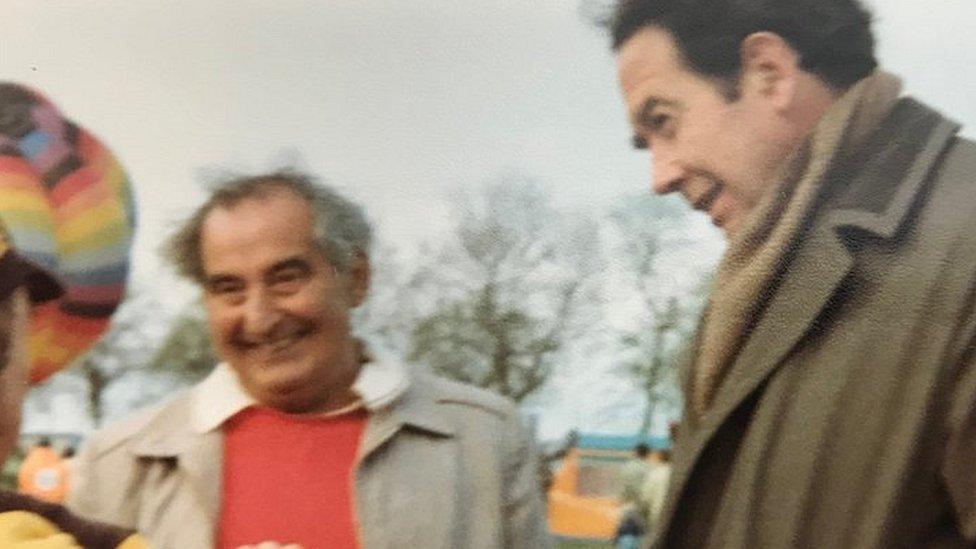Royal Papworth Hospital marks lung-heart transplant milestone
- Published

Prof John Wallwork (centre) met with staff and former patients to mark 40 years since the first European successful heart-lung transplant
Forty years since Europe's first successful heart-lung transplant was carried out, staff and patients have met to celebrate the anniversary.
Brenda Barber was 36 years old when she underwent the pioneering operation on 5 April 1984 at what is now Royal Papworth Hospital in Cambridge.
She lived for 10 years with her new heart and lungs before dying in 1994.
Prof John Wallwork, who led that operation, said seeing near-death patients recover was "remarkable".
He said: "Dealing with someone who's really sick, someone with severe heart or lung failure and they really are breathing their last - they're blown up like a balloon or they're blue.
"Putting in a new heart or lung, they go pink and they go back to living a normal, active life."
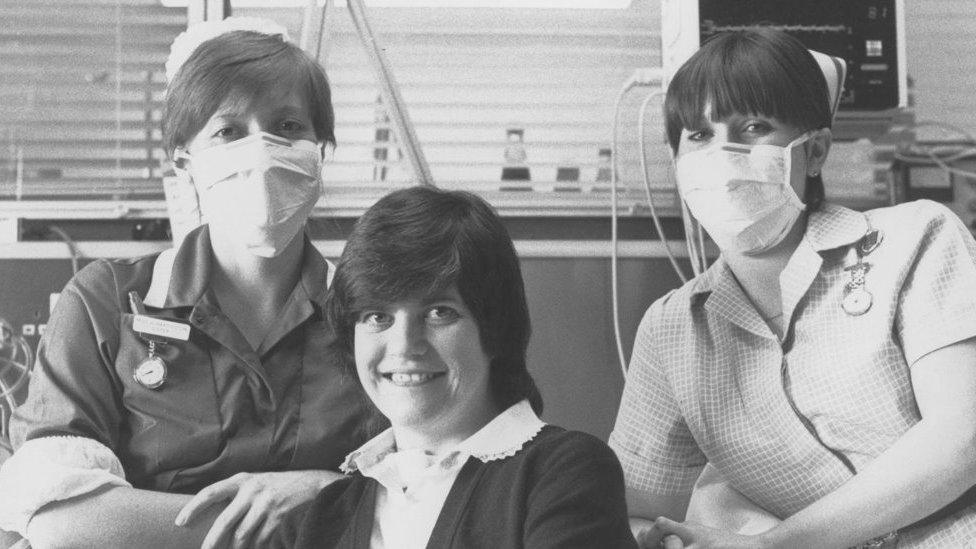
Brenda Barber (centre) with Hazel Farren (l), an intensive care sister at the time, who nursed her
Mrs Barber became the first heart-lung recipient in Europe to leave hospital, while other patients died after their operations.
Prof Wallwork said: "You take a person, you take their heart and lungs out and it's a completely empty space in a live person, and you put a new set in and then you see them the next day or two when they wake up and talk to you - it's a most remarkable thing."
He described Royal Papworth as "probably one of the most wonderful hospitals in the world".

Prof John Wallwork (r), photographed in the operating theatre
Recently retired nurse Hazel Farren was a sister in Papworth's intensive care unit in 1984 and cared for Mrs Barber immediately after her groundbreaking surgery.
"Being involved in the first successful operation was amazing," she said.
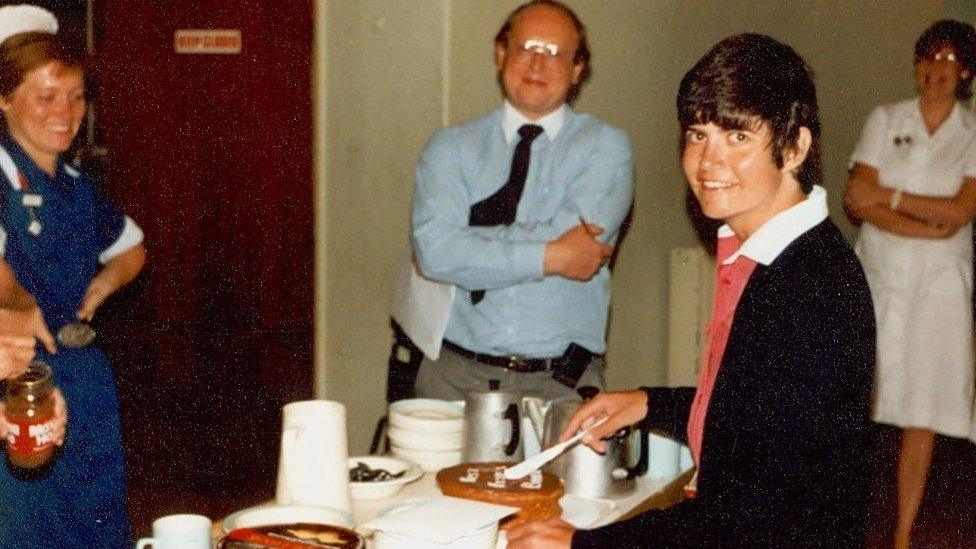
Sister Hazel Farren (l) with Prof John Wallwork (centre) and Brenda Barber (r)
"Bearing in mind I'd nursed Brenda in a previous life at the Royal Brompton Hospital [in London], and saw what a poor little thing she was - and then to realise she was having this life-saving treatment, it was amazing," Ms Farren said.
"It felt like a real leap forward for these people with awful, awful lung disease.
"It was very surreal but I'm very proud to have been involved - it makes you realise what a special job we do."
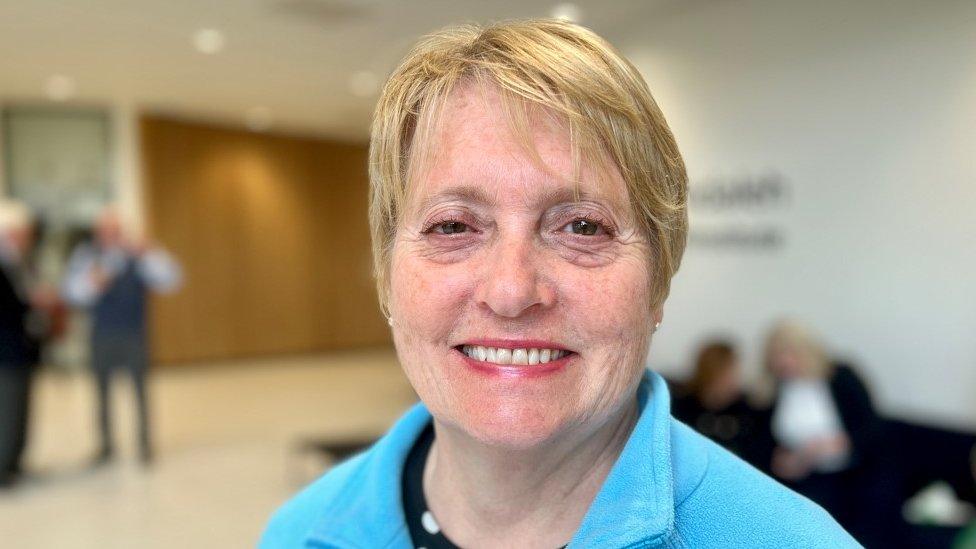
Hazel Farren was an intensive care nurse who looked after Brenda Barber
Recalling the time immediately after the operation, when she was caring for Mrs Barber in the intensive care unit, she said: "Mr Wallwork was walking up and down the corridor like an expectant father."
Asked why the operations meant so much to her, Ms Farren said: "The alternative for that patient was they were likely to die, and certainly Brenda had a very limited life expectancy at that time.
"To be able to be involved in something that extends a life for someone who was a mum to a dear little seven-year-old at the time - it was incredible."
She added: "Brenda used to say she couldn't be a normal mum, and you knew that by having that [surgery] she was going to be able to go back home and back to her job as a dinner lady - and look after her little girl."
One of those at the 40th anniversary reunion was Katie Mitchell, now 51.
She was just 12 when she was told she could go on the waiting list for a double transplant and is now one of the longest survivors in the world, the hospital said.
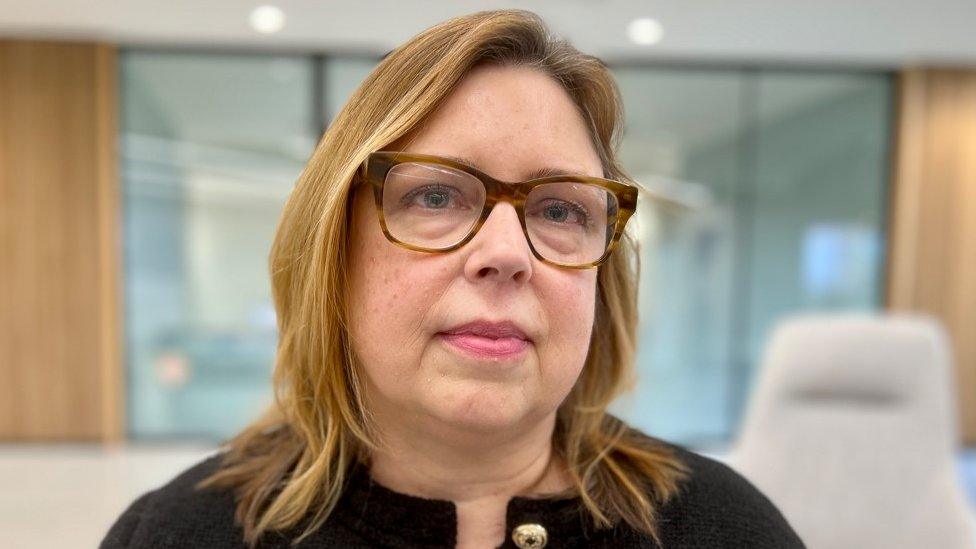
Katie Mitchell, from London, had a heart-lung transplant in 1987 and is one of the longest survivors in the world
Ms Mitchell said she was "very positive" when she got the call in 1987 that organs were available.
"I never thought I wouldn't get through it, but if I hadn't had it, I wouldn't probably have lasted the year," she said.
"After transplant, all I wanted to do was be normal - I've done everything to live a normal life.
"I went back to school, got my qualifications and I've always worked.
"I got married, I've gone on lovely holidays and just done everything that everybody else has done."
Remembering life before her transplant, Ms Mitchell said: "I couldn't breathe, I couldn't get up the stairs - once you've got the ability to enjoy life, you just make the most of it.
"I think everyone should be an organ donor - I think the opt-out system is much better than having to sign up.
"Without donors and their families, none of this could happen - they've saved so many lives."
She described the 40th anniversary as a milestone.
"It's lovely to be able to celebrate and to show new patients how well we're doing," she added.

Follow East of England news on Facebook, external, Instagram, external and X, external. Got a story? Email eastofenglandnews@bbc.co.uk, external or WhatsApp 0800 169 1830
Related topics
- Published1 June 2023
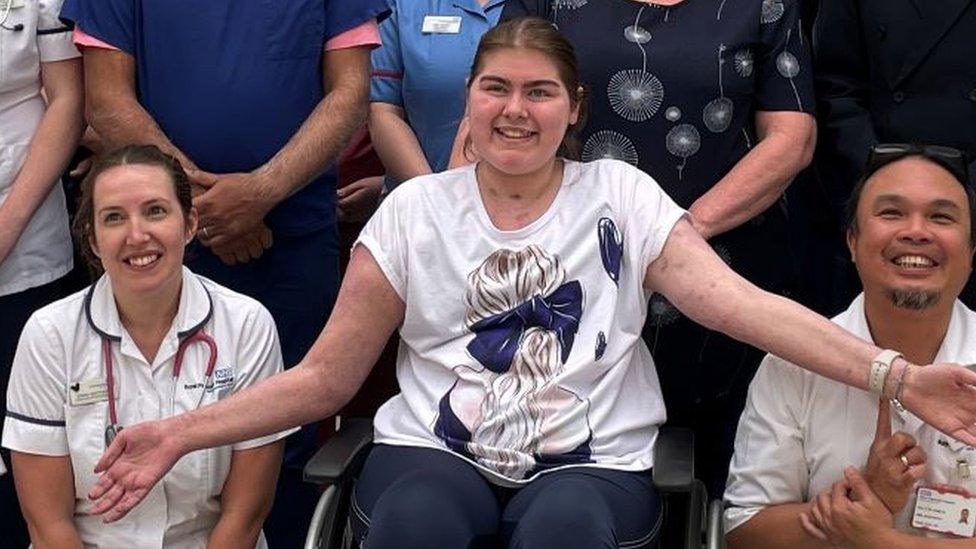
- Published22 May 2023
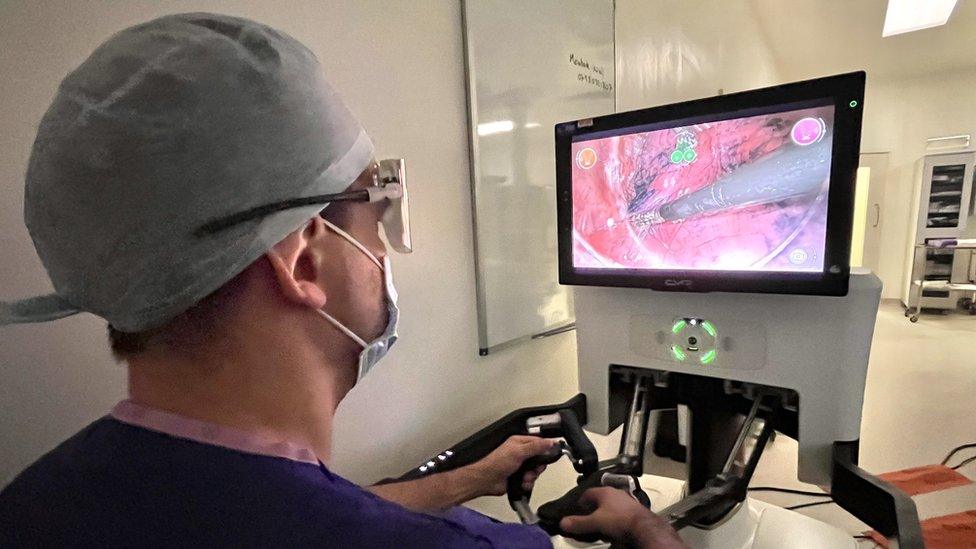
- Published30 September 2022
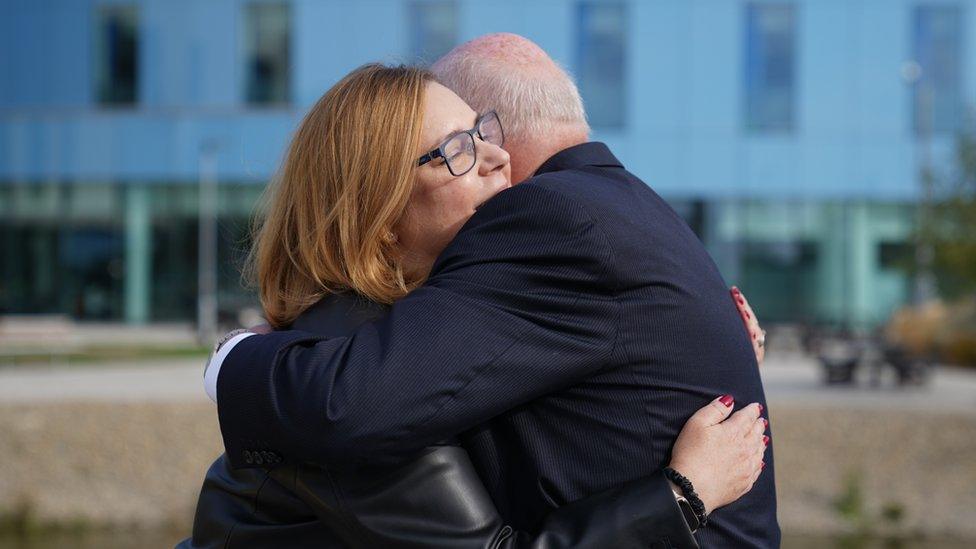
- Published19 August 2019
